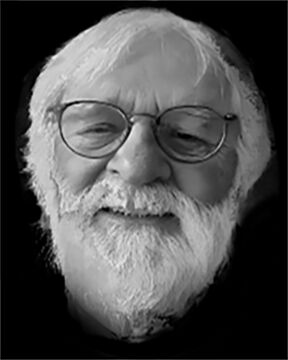Dx Fx Lenses and Focal Length
Aug 22, 2014 09:12:47 #
I have seen this written that on my Nikon D7000, I should multiply the marked focal length by 1.5 to get a true representation on focal length. Is this ONLY true when using Fx lenses with the D7000 or on Dx lenses as well. I appreciate the sensor on a Dx is smaller than on an Fx, but weren't the Dx lenses made in consequence to this smaller sensor?
Aug 22, 2014 09:19:20 #
The focal length is always the same. The effective field of view is what changes from DX to FX.
DX lenses were made to accommodate a smaller sensor, but the focal length is the same as an FX lens.
For instance, the 10-24 DX wide angle mounted on a D600 (FX) will produce the same field of view at 18mm as the 14-24mm FX lens would, with only differences in distortion and other technicalities like chromatic abberation
DX lenses were made to accommodate a smaller sensor, but the focal length is the same as an FX lens.
For instance, the 10-24 DX wide angle mounted on a D600 (FX) will produce the same field of view at 18mm as the 14-24mm FX lens would, with only differences in distortion and other technicalities like chromatic abberation
Aug 22, 2014 19:57:27 #
amehta
Loc: Boston
Bruce M. wrote:
I have seen this written that on my Nikon D7000, I should multiply the marked focal length by 1.5 to get a true representation on focal length. Is this ONLY true when using Fx lenses with the D7000 or on Dx lenses as well. I appreciate the sensor on a Dx is smaller than on an Fx, but weren't the Dx lenses made in consequence to this smaller sensor?
The angle of view (AoV) changes because of the DX sensor. Nothing else changes, and it does not matter what type the lens is.
Ideally we would divide the AoV by some factor, but that is more complex than multiplying the focal length by 1.5x. And since photographers have been used to thinking of certain focal lengths for decades (50mm = "normal", 24mm = "wide", 85mm = "portrait", etc), the "equivalent focal length" meme stuck.
I know I'm repeating what Stef C said, but it needs to be said often because there is a lot of confusion about this. ;-)
Aug 23, 2014 05:54:57 #
Stef C wrote:
The focal length is always the same. The effective field of view is what changes from DX to FX.
DX lenses were made to accommodate a smaller sensor, but the focal length is the same as an FX lens.
For instance, the 10-24 DX wide angle mounted on a D600 (FX) will produce the same field of view at 18mm as the 14-24mm FX lens would, with only differences in distortion and other technicalities like chromatic abberation
DX lenses were made to accommodate a smaller sensor, but the focal length is the same as an FX lens.
For instance, the 10-24 DX wide angle mounted on a D600 (FX) will produce the same field of view at 18mm as the 14-24mm FX lens would, with only differences in distortion and other technicalities like chromatic abberation
You had better rephrase that, this is misleading nonsense......
Aug 23, 2014 08:17:55 #
Bruce M. wrote:
I have seen this written that on my Nikon D7000, I should multiply the marked focal length by 1.5 to get a true representation on focal length. Is this ONLY true when using Fx lenses with the D7000 or on Dx lenses as well. I appreciate the sensor on a Dx is smaller than on an Fx, but weren't the Dx lenses made in consequence to this smaller sensor?
To make it simple and the purists are going to yell, on a DX camera, any lens will APPEAR to be 1.5 times it's real focal length. It doesn't matter whether the lens is FX or DX, it is the camera body.
Aug 23, 2014 10:56:41 #
focal length is the distance that the lens is from the film/sensor when focused at infinity. 50mm is 50mm is 50mm.
This whole crop factor thing came about because people were use to using the 35mm format and used this crop factor to compare the field of view for the smaller sensors.
An other way to get your head around this whole crop factor thing.
A 50mm lens use to be considered a "normal" lens on a 35mm camera.
A 80mm lens would be considered a "normal" lens on a 60X60mm medium format camera
And a 200mm lens mite be considered "normal" on a 4x5 camera.
So when someone talks about a "full frame" camera are they talking about an 8x10,a 4x5, a 60cm, or one of those new fangled miniature 35mm cameras:)
This whole crop factor thing came about because people were use to using the 35mm format and used this crop factor to compare the field of view for the smaller sensors.
An other way to get your head around this whole crop factor thing.
A 50mm lens use to be considered a "normal" lens on a 35mm camera.
A 80mm lens would be considered a "normal" lens on a 60X60mm medium format camera
And a 200mm lens mite be considered "normal" on a 4x5 camera.
So when someone talks about a "full frame" camera are they talking about an 8x10,a 4x5, a 60cm, or one of those new fangled miniature 35mm cameras:)
Aug 23, 2014 11:01:57 #
mrtobin wrote:
focal length is the distance that the lens is from... (show quote)
Yes but that wasn't his question. Which is why I said "apparent".
And he is correct, Nikon refers to it as a focal length multiplier. Technically this it a wrong term but they as everyone else is getting tired of discussing it correctly to get a point across. Technically, you are correct, but the results are the same. The camera, in essence, does the same thing as a digital zoom. It limits the lens view and takes that image and enlarges it to fit the screen. 1.5 multiplier.
Aug 23, 2014 11:19:24 #
amehta
Loc: Boston
dcampbell52 wrote:
Yes but that wasn't his question. Which is why I ... (show quote)
Yes, but the marketing people at Nikon and other manufacturers made sure it sounded like an increase in something good, when in fact it is a reduction in what you see. And they don't get to claim "we just went along with everyone else," nobody had more ability to influence the jargon about this than Nikon.
Aug 23, 2014 11:29:46 #
amehta wrote:
Yes, but the marketing people at Nikon and other manufacturers made sure it sounded like an increase in something good, when in fact it is a reduction in what you see. And they don't get to claim "we just went along with everyone else," nobody had more ability to influence the jargon about this than Nikon.
The marketing people just tried to explain the phenomenon as something that the average Joe Blow would understand. They don't care about how its done, the want to know what it will look like. And that is how it is described.
Aug 23, 2014 12:34:22 #
zigipha
Loc: north nj
dcampbell52 wrote:
Yes but that wasn't his question. Which is why I ... (show quote)
No, its not the same as a digital zoom. digital zoom does pixel replication, which the lens does not.
Think of it more as a teleconverter.
Aug 23, 2014 12:37:46 #
amehta
Loc: Boston
zigipha wrote:
No, its not the same as a digital zoom. digital zoom does pixel replication, which the lens does not.
Think of it more as a teleconverter.
Think of it more as a teleconverter.
The teleconverter is an optical device. Enlarging the crop sensor image to the same display size as a full frame image is digital manipulation (interpolation), just like digital zoom.
Aug 23, 2014 14:11:46 #
amehta wrote:
The teleconverter is an optical device. Enlarging the crop sensor image to the same display size as a full frame image is digital manipulation (interpolation), just like digital zoom.
I was using digital zoom as a comparison. It was intended to be an example to explain a simple phenomenon that certain people try to over analyze to show their mentality. If a person understands that the phenomenon appears to increase the focal length by 1.5 or in the case of a Nikon 1 by 2.77 and that makes it easier to visualize then just go with it and quit trying to over analyze it. He asked a question and it was explained so that he under stood it. He doesn't need anyone at a blackboard drawing diagrams and physics of how and why it is not a change in focal length. All you are doing is a failed attempt to over complicate a simple description to prove your intelligence. Nikon and Canon have decided to explain the issue that way. If you don't like their description (in their manuals and website by the way) get your own camera company and describe it your way. He was asking about the remark in his manual. It was explained in the way Nikon wants it explained (such that most non physics majors can understand it.)
Aug 23, 2014 23:39:20 #
amehta
Loc: Boston
dcampbell52 wrote:
I was using digital zoom as a comparison. It was ... (show quote)
:lol: :lol: :lol:
If you want to reply, then register here. Registration is free and your account is created instantly, so you can post right away.




